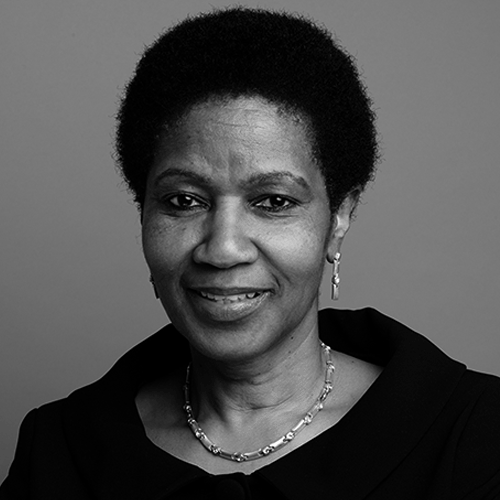
Phumzile Mlambo-Ngcuka
Executive Director, UN Women
Around the world, researchers are helping tackle and find solutions for some of our most pressing global challenges, such as energy and environmental security and sustainable economic growth. Research is key to understanding the world around us, ensuring the collection of quality data that provides critical perspective and allows us to make creative leaps, as well as track progress.
Women like Jennifer Doudna show the way, leading the development of CRISPR-mediated genome editing, biochemistry and genetics. But there are not enough women in research.
Plan for the future
Women currently make up just 28 percent of researchers, and they are under-represented in research and development globally. The world needs women to join the research sector if we are to bring the most diverse range of talents to solving humanity’s problems. The future of work is bringing widespread digital and technological changes, including robotic skills to displace some human labor.
By the year 2050, it’s predicted that half of the jobs that currently exist will have disappeared. This puts a premium on researchers’ unique skill, and factualizes our need for more humans in this industry.
Unblock the pipeline
To drive parity in the research sector, we first need to unblock the talent pipeline so that women have a clear pathway to a rewarding career, whether in academia or commercial, product-based research. We need to change stereotypes around women in science, technology, engineering or mathematics (STEM); increase the number and visibility of role models; raise awareness of unconscious bias among educators and employers; develop workplace policies and practices that work for both women and men; and ensure that legal and governmental structures prioritize research and support its expansion.
Unblocking the pipeline also means creating an inclusive workplace so that women enter and remain in STEM careers. This means providing training opportunities, workplace reintegration plans after parental leave and equal pay for work of equal value.
Address the gap
A recent analysis of some 1,200 US graduates shows that within a year of completing a PhD in a STEM field, women already earn nearly one-third less than men. If employers are serious about gaining and retaining the best talent, these gaps need to be swiftly and conclusively addressed.
Women as change agents for research, science and innovation are powerful forces that can deliver creativity at scale, break global development trends and achieve the 2030 Agenda for Sustainable Development. Together, let us inspire girls and create the environment where women in STEM and research can thrive, to the benefit of all.

